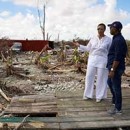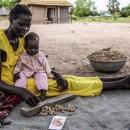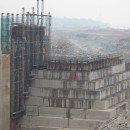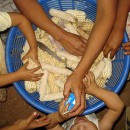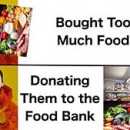Friday, June 9, 2023
News and Views from the Global South
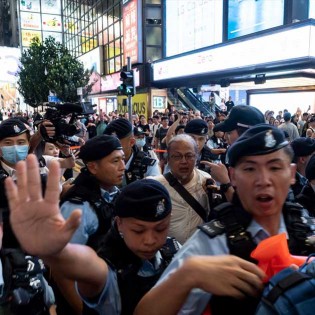
Hong Kong’s Lights of Freedom Extinguished
Nothing was more predictable than repression. Merely for holding candles and flowers, people were taken away by Hong Kong’s police. The occasion was the anniversary of the Tiananmen Square Massacre, 4 June 1989. Hong Kong was until recently home to mass annual vigils where thousands gathered to keep alive the memory of that day. But that’s all gone now in the crackdown that followed large-scale protests for democracy that erupted in 2019.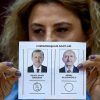
Hopes for Renewal Dashed in Turkey
Turkey’s election hasn’t produced the change many thought was on the cards. Now women’s groups, LGBTQI+ people and independent journalists are among those fearing the worse. Recep Tayyip Erdoğan, who has led the country for two decades, first as prime minister and then as president, prevailed in the 28 May runoff poll, taking around 52.2 per cent of the vote, with his opponent, Kemal Kılıçdaroğlu, on 47.8 per cent.
Thailand: Time for Democracy
Thailand’s voters have spoken. In the 14 May general election, they overwhelmingly backed change. Two major opposition parties won 293 seats in the 500-member House of Representatives.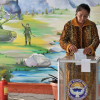
Uzbekistan: A President for Life?
Where will you be in 2040? For Uzbekistan’s President Shavkat Mirziyoyev, the answer is: in the Kuksaroy Presidential Palace. That’s the chief consequence of the referendum held in the Central Asian country on 30 April. With dissent tightly controlled in conditions of closed civic space, there was no prospect of genuine debate, a campaign against, or a no vote.
Fiji: Deeper Democracy or Continuing Danger?
It’s been a time of significant change in Fiji following the country’s December 2022 election. A close vote was followed by the formation of a new coalition government. Frank Bainimarama was out as prime minister after 16 years, replaced by Sitiveni Rabuka.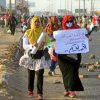
Sudan Conflict Marks Failure of Transition Plan
The current fighting in Sudan marks the failure of supposed processes for transition to democratic rule. The international community needs to learn the lessons of this catastrophe and work with civil society.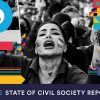
Civil Society a Vital Force for Change Against the Odds
Brave protests against women’s second-class status in Iran; the mass defence of economic rights in the face of a unilateral presidential decision in France; huge mobilisations to resist government plans to weaken the courts in Israel: all these have shown the willingness of people to take public action to stand up for human rights.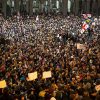
Georgia: Danger Averted, for Now
Georgian civil society can breathe a sigh of relief. A proposed repressive law that would have severely worsened the space for activism has been shelved – for now. But the need for vigilance remains.
Belarus: A Prison State in Europe
Last October, Ales Bialiatski was awarded the Nobel Peace Prize. He was one of three winners, alongside two human rights organisations: Memorial, in Russia, and the Center for Civil Liberties in Ukraine. The Nobel Committee recognised the three’s ‘outstanding effort to document war crimes, human rights abuses and the abuse of power’.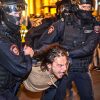
Russia and Ukraine: Civil Society Repression and Response
Over the year since the start of Russia’s war on Ukraine, on one side of the border civil society has shown itself to be a vital part of the effort to save lives and protect rights – but on the other, it’s been repressed more ruthlessly than ever.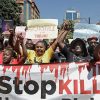
Eswatini: Democracy a Matter of Life and Death
Thulani Maseko knew speaking out in Eswatini was a risky business. An activist and well-known human rights lawyer, he’d previously spent 14 months in jail for criticising the country’s lack of judicial independence. Now he’s dead, shot in his home by unknown assailants.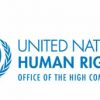
Time for a UN Human Rights Leader
The UN High Commissioner for Human Rights sits at the top of the UN’s human rights system. It’s a crucial role for the victims of violations and the many civil society activists who look to the UN system to set and apply human rights norms, monitor the human rights performance of states and hold rights violators to account.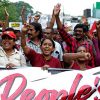
Sri Lanka: Economic Meltdown Sparks Mass Protests
Economic crisis has provoked a great wave of protests in Sri Lanka. People are demanding the resignation of the president, blamed for high-handed and unaccountable decision making, exemplified by his introduction of an agricultural fertiliser ban in 2021 that has resulted in a food crisis. People don’t just want the president’s removal: they want a change in the political balance of power so that future presidents are subjected to proper checks and balances. Hope comes from the wide-reaching and diverse protest movement that has put aside past differences to demand change.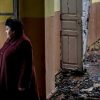
Firm, Unified Response Needed to Russia’s Aggression
It is now clear diplomacy matters little to Vladimir Putin. Despite the efforts of a string of presidents and prime ministers to prevent conflict, on 24 February, Putin started the war he’d been itching for.


